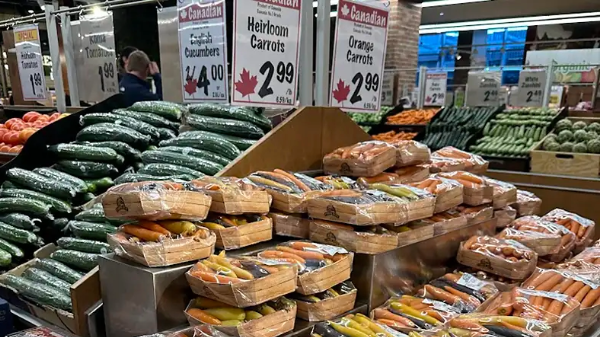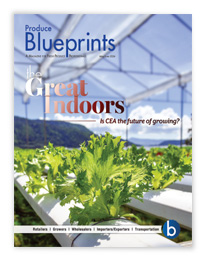European and Canadian governments have targeted food packaging, particularly plastic, as a threat to climate change, and plan to phase them out.
In response, a group of non-profit industry and non-governmental organizations formed a coalition to engage with regulators to find compromises that don’t threaten public health and food safety.
One leader is optimistic that the effort is showing signs of success.
In early February, International Fresh Produce Association BB #:378962 chief science officer and chair of the Alliance for Sustainable Packaging for Foods (ASPF), Max Teplitski, said alliance members have made inroads ahead of some packaging related deadlines.

He said European councils and parliaments expect to finalize packaging regulations in March, and then these new regulations would be set.
Alliance members have been engaging with European leaders, working on provisions for food safety and quality, because Teplitski said strict rules will have unintended consequences.
With the proposed regulations, “food safety terrifies me most because of the open-ended consequences. There would be no traceability, no safety against cross contamination.”
Among the proposals in Europe is to ban PLU stickers, but Teplitski said the Alliance advocates an exemption for them as they are alternatives to packaging, not packaging itself.
In Canada, the government proposed plans last year to eliminate plastic packaging in produce sold in Canada by 95 percent by 2028. IFPA CEO Cathy Burns met with Canadian prime minister Justin Trudeau in November, and among other things, stressed the important role plastic packaging has in keeping food safe, fresh, and affordable.
Canadian produce leaders also met with Trudeau on the same topic, and in December, Canadian Produce Marketing Association BB #:153602 president Ron Lemaire partnered with Western Growers BB #:144734 president Dave Puglia on a letter that said a food plastic ban would cause food shortages and increase prices.
Teplitski said a recent Canadian court ruling said plastic cannot be classified as a toxic substance and that waste reduction isn’t in federal jurisdiction, so the Canadian government is revising its proposed packaging laws.
“This is a good time [for us] to find middle ground with the Canadian government,” Teplitski said.
He said unofficial reports from Canadian officials is that the agriculture and food safety stakeholders have made progress, but climate change advocates still support the plastic ban.
Teplitski said he hopes science and evidence can help persuade regulators that a plastic ban for food would be more harmful than helpful.
The alliance hosts a position paper on its website of published peer-reviewed studies on the important role of packaging in food safety and food waste.
He said alliance members are in full support of more sustainable practices in food production and packaging, as “no one wants more waste and litter.”
We will know pretty early this year if this advocacy work is paying off.



